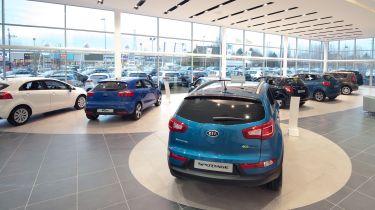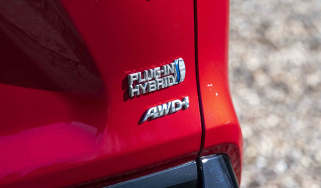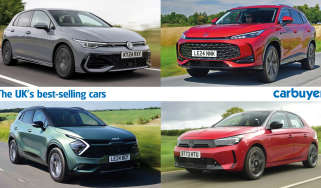When’s the best time to buy a new car?
Timing can be important when buying a new car – find out the seasonal factors that can influence how much you'll need to spend

Getting a deal on your new car can be a daunting task, especially when a dealer has a lack of vehicles to sell and a busy order book, but timing can be your biggest asset when looking to buy. Car dealers will always have targets to hit and manufacturers will always have to balance supply against demand, meaning there can be windows of opportunity for car buyers to take advantage of.
Whether it be a new model that’s just about to arrive, or a dealer needing to make another sale to hit their target, there can always be an opportunity to strike a deal, especially if you are ready to sign the paperwork. Knowing how to haggle for a car certainly can help, but can be awkward and doesn’t always guarantee getting the deal you want on its own. Matching it up with good timing can help tilt any negotiations in your favour and make it easier to get the deal you want.
Whether it be a manufacturer offering lots of money off an outgoing model or a dealer willing to discount the car you want to get a sale, car buyers should be prepared to do a deal if the numbers work for them.
Is it worth waiting for a new registration plate to be released?
It was once the case that the sheer prestige of owning a car with the latest registration number would see sales increase dramatically around the time of the annual 'plate change'. This all changed, though, with the introduction of the present registration system, which introduces a new plate in March and September each year.
This system was introduced to spread car sales figures more evenly throughout the year and it has been partially successful. However, the showrooms are still at their busiest on the cusp of a plate change – new-car sales figures still peak in March and September.
Carbuyer's guide to taking a test drive
This plays right into your hands if you're not too bothered about having the very latest registration number, with many dealer networks 'pre-registering' cars in order to meet their sales targets. When March or September comes and these cars no longer wear the latest registration number, their prices can be reduced in order to keep buyers interested.
Be careful, though – while you might save some money at the time of buying, you could lose it when it comes to time to sell: An early 2021 car wearing a '70' plate (which debuted in late 2021) may be worth a little less secondhand than a '21' plate example registered just a week later.
Find out when a car is due for an update or replacement
If you’re already looking at a shortlist of a few different models, do some digging to find out when the current generation of each one was introduced, or if a new version or significant update is just around the corner. Manufacturers usually entirely replace a model roughly every seven years – as well as introducing a ‘facelift’ approximately half-way through its time on sale.
Look out, too, for ‘run-out’ specials – new trim levels introduced towards the end of the car’s time on sale to help boost sales as production comes to a close. They tend to come packed with standard kit, or have lots of features usually offered as optional extras thrown in for free.
The best months to buy a new car
Sales targets will usually dictate a dealer's willingness to narrow their profit margin and offer money off a car. Like most companies, their quarterly targets are particularly important. March and September are already bumper months for car sales however the end of June and December can be great for bargain hunters. These quarterly targets can be more challenging for dealers to achieve and many prospective buyers are unwilling to sign a deal with the expense of a summer holiday or Christmas just around the corner. This could make you one of a smaller portion of visitors to a showroom ready to sign on the dotted line, which you can leverage to your advantage.
Sale Events and Bank Holiday sales
Car dealers differ from many other retail businesses due to their high value and relatively low volume. A furniture store may need to sell hundreds of items to reach its targets, while car dealers can do so with much lower sales figures.
However, where they are similar to any other retail industry is in the tactic of boosting sales through a limited-time discount. Bank holidays can be promising times for car buyers as car dealers hope to entice people into the showroom. Car dealers, like many retailers, have begun to shy away from the black Friday sales events realising that fighting for customers on the same day isn’t best for business. Instead many dealers now run sale events that they market through both traditional and social media.
Committing to a deal
It goes without saying that you shouldn’t rush to sign a deal you aren’t completely content with. This shouldn’t stop you from making a commitment to buy when the deal you want is offered. Remember the list price of a vehicle rarely goes down as time goes by, with updated models usually commanding a higher price than an outgoing model.
The Ford Focus started at £21,900 back in 2019, but now in 2022, the list price starts at £26,190 highlighting just how much prices can rise during a three-year ownership period.
Read our in-depth guide for the best new cars to buy now.
Recommended

Petrol and diesel car ban relaxed with hybrids permitted beyond 2030

Classic car tax exemption: which historic vehicles qualify?

Car warranties: guide to new and used car warranties
Most Popular
Tips & advice

Car dashboard warning lights: what does each symbol mean?

Electric car charging stations: public networks, charger types, apps and maps









